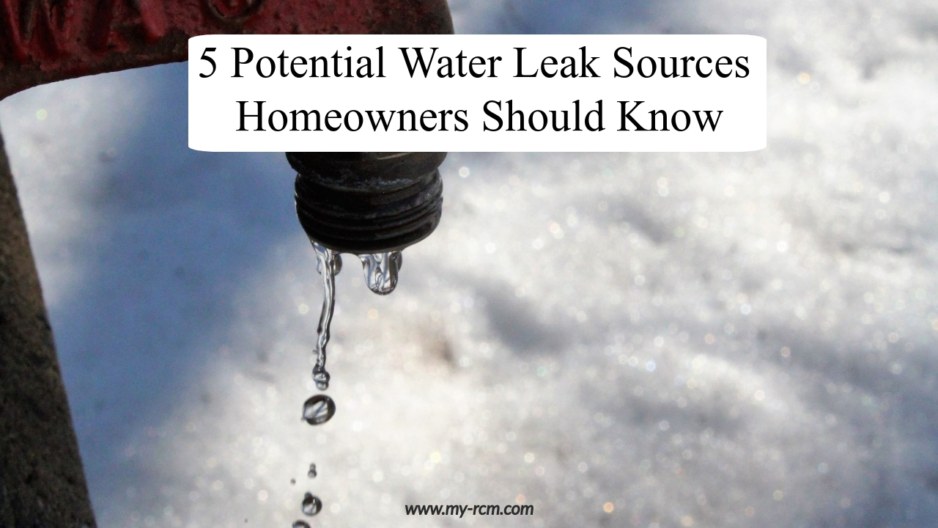5 Potential Water Leak Sources Homeowners Should Know
You should take immediate action to find water leakage in your home to save the water bill and prevent property damage. You should address the leakage from its source; however, it can be challenging to find water leak sources. One home might have a different plumbing and drainage system, making it difficult to detect the leakage source.
Water leakages could occur due to overgrown tree roots, animal burrowing, weather fluctuations, and malfunctioning water pipes. If the water bill goes high, you can detect a leak by undertaking a stethoscope test, checking for cues, examining the toilet and under the sinks; read on to learn more about these water leakage detection tips.
1. The Water Meter Will Continue Running Even When Everything Is Turned Off
The source of the leakage which occurs due to a running meter might be hard to find. But you will know there is leakage if the water meter continues running when everything is switched off. Moreover, if you don’t have water leakage clues, it would be wise to let a plumber inspect the whole drainage system.
2. Corrosion
As pipes age, corrosion (like rust) can pick away at them. Look for pipes turning strange colors or warped in some way. They might need to be replaced.
3. Water Leakage In the Backyard and Garden
Water leakage in the backyard could lead to damp soil, ponds, wet paths, and concrete. You might think the water results from rain and precipitation; however, if one spot is wetter than others, it might indicate water leakage. Moreover, rain does not occur in one spot, and it would be wise to examine the wet areas.
Water leakage in the lawn might be hard to note as the water drains into the soil below. However, if your grass is thriving and your neighbor’s grass is struggling, you should inspect the drainage system in the lawn. Moreover, too much water in the lawn soil might make the grass near the water leakage source appear yellow due to excess water in the roots.
4. Hot Water Heaters
In most cases, water heaters will typically last 10- to 12-years before they struggle to provide you with hot water. If you are proactive about either repairing or replacing it, you may never have an issue with your hot water tank. However, It’s not unusual to be unaware of a problem until you realize you have a small creek in your basement.
5. Patches on the Ceiling Might Show Burst Pipes
If the indoor pipes burst, it would lead to damp, warped, discolored walls, ceilings, and floorboards. The slight discoloration on the walls might occur due to watermarks. If you don’t repair the leakage from the source, the walls could collapse. Thus it would be best to let a plumber inspect the water leakage in the indoor drainage system.
Is a Condo Association Management Responsible for Water Leaks?
The answer to this seemingly simple question is often found within the governing documents themselves.
The best documents will be thorough and meticulous, often with a section on HOA water damage responsibility specifying the exact situations wherein an HOA or a homeowner should be held accountable.
For instance, if it is the result of an HOA or condo water damage negligence, then the homeowner should not be responsible for it. Similarly, if the water damage was caused by the association failing to fulfill HOA plumbing responsibilities, they must answer for the damages as well.
Conclusion
Communication is key when it comes to water damage cases. Should a homeowner find water damage stemming from outside of their home or condo unit, they must notify the condo association management as quickly as possible.
Water leakages damage property and lead to a high water bill. However, you can learn how to detect water leaks by yourself. For instance, discoloration on the walls, wet paths, water pools in the lawn could be signs of water leakage.
If there is a stream in the gutter, you can follow the flow until you find the source of the leakage. However, in most instances, finding the source of the leakage can be challenging. You can hire a plumber who is knowledgeable in detecting and repairing water leakages.
Prevention may save a homeowner from inconvenience and financial hardship. Inspecting your plumbing system regularly will keep your wallet free of leaks as well.

